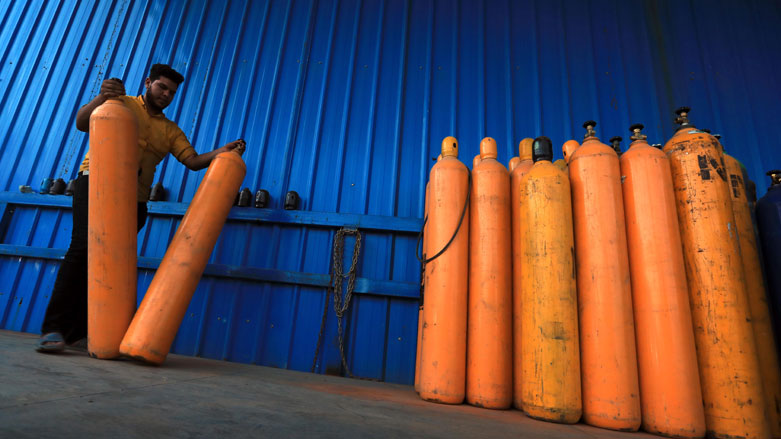COVID-19: Kurdistan Region's total fatalities nearing 3,000

ERBIL (Kurdistan 24) – The announcement of over 20 new coronavirus-related fatalities on Wednesday has brought the death count in the Kurdistan Region to nearly 3,000 since the emergence there of the highly-contagious disease eight months ago.
This comes just hours after officials confirmed the death of Firsat Sofi, Erbil province's popular governor who died after testing positive for the virus some four weeks earlier.
Read More: Governor of Kurdistan Region’s capital Erbil dies from COVID-19 aged 42
In their daily coronavirus update, officials from the regional health ministry announced 576 new infections over the previous 24 hours out of over 5,327 tests completed in that period.
Adding the new figures, the Kurdistan Region has seen 91,480 cases since the advent of the pandemic in early March.
Officials have blamed the current spike in the number of patients, often over 1,000 new cases per day, primarily on the public’s failure to follow health measures enacted to stem the spread of the disease.
Following alarming surges in new cases, the Kurdistan Regional Government (KRG) has mandated that face masks be worn in public, with a fine of 20,000 Iraqi dinars (about $16) for those who fail to comply.
Health officials announced this week that over 31,000 COVID-19 patients are currently being treated for the disease in hospitals and clinics throughout the Kurdistan Region.
Read More: COVID-19: Kurdistan Region has over 31,000 patients under treatment
The health ministry says that over 56,000 people have recovered from the coronavirus, but it is important to note that a “recovery” classification only indicates that a patient is no longer being actively treated by health professionals—not that they have fully recovered from the disease.
Increasingly, medical experts recognize that COVID-19 symptoms, some of them quite serious, often continue long after an individual’s formal recovery and that various other effects, such as significant lung damage, could be permanent.
On Tuesday, the Iraqi health ministry also said that it expected an increase in the rate of infections with the arrival of winter and directed that health inspectors step up field visits to public places and immediately close any facilities that are found to be in non-compliance with government instructions and preventive measures.
Read More: COVID-19: Iraq warns of winter surge in infections
According to the latest health figures in Iraq, the total national number of infections reached is 526,852 and nearly 12,000 deaths.
Editing by John J. Catherine
